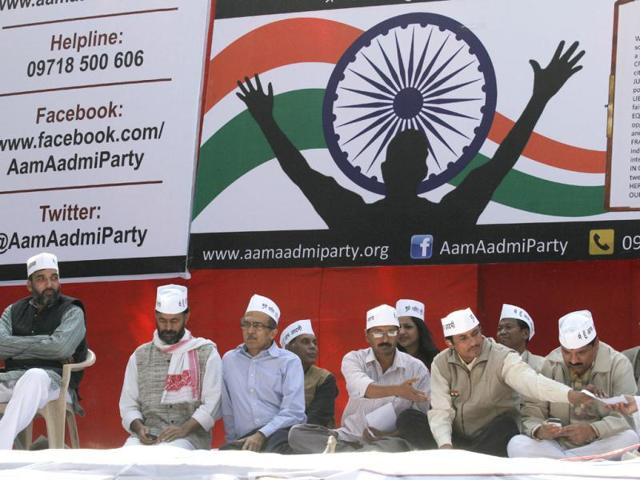AAP: a “political lone-ranger”?
Arvind Kejriwal is the rebel in the political system that Rahul Gandhi imagines himself to be and the Left parties long believed they could be. With support from a wide range of political and non-political advisors, he has shaken and stirred the system to an extent that veteran politicians are talking his language.
Arvind Kejriwal is the rebel in the political system that Rahul Gandhi imagines himself to be and the Left parties long believed they could be. With support from a wide range of political and non-political advisors, he has shaken and stirred the system to an extent that veteran politicians are talking his language. Excitable political analysts have begun to tell us that we are in the middle of a political revolution in the country and, for a change, the highly aspirational and self-absorbed middle class is leading this uprising.

A month after a stunning debut in the Delhi state election, Kejriwal wants us to believe that his Aam Aadmi Party will do a “Delhi” across India. Wouldn’t it be perfect if this dream were to be realised six months from now as we read the result of the general election, when the AAP would stop cynical, corrupt, people-unfriendly political parties from forming the country’s government? Right now, the AAP is on the upswing and looks capable to pulling off miracles; AAP believers are even pitching for Kejriwal as the next prime minister.
The AAP’s rise in India, and the surge that it claims in Mumbai and Maharashtra, mimics a familiar pattern in Europe that’s come to be called “the political lone-ranger” philosophy. Across European countries, the last year witnessed a rash of political parties rise, coming out virtually out of thin air as the AAP did, often tilting to the far-right but refusing to do business with any established party, capturing people’s imagination, promising vast and deep changes in the system, showing stunning to abysmal results in elections and often fading away or becoming marginal as fast they grew. Germany, France, Italy, Britain and Greece, to name a few, displayed this political lone-ranger philosophy at work. Excitable political analysts and a supportive media called these lone-rangers revolutionaries. Contemporary history has had to be revised in the shortest possible time.
There may be lessons there that Kejriwal and Yogendra Yadav would like to learn. There’s much that the AAP can be thanked for, but it may be too early to call Kejriwal and his team revolutionaries. That said, the AAP has indeed changed some rules of the game already.
The AAP effect is most visible in the way career politicians have suddenly woken up to the issues of water and electricity in our metros, certainly so in Mumbai. Congress MPs Sanjay Nirupam and Priya Dutt have been arguing for price cuts from their own government. The AAP’s method of only accepting donations by cheques or bank transfers and uploading its sources of funds is giving career politicians of all parties a headache: if they don’t follow suit, they will be seen as non-transparent but they cannot follow the AAP because their entrenched interests run too deep. The AAP’s strategy to elicit public opinion and organise referendums to take major decisions – giving people a voice and real power – has left parties crying foul that this isn’t governance.
The AAP is also a product of a particular political time; it occupies the space for alternative politics because both the dominant political formations are so similar in their political-economic ideology, non-transparency, alienation of the electorate and cosiness to crony capitalists. The AAP has offered hope that better politics is possible, that alternative ways of governance are conceivable, that we do not have to live with the idea of Narendra Modi as the next prime minister. Let it have its six months in Delhi to show if its best plans can be realised.
Meanwhile, it would be intriguing to see how rank socialists in Mumbai who have flocked to the AAP will work with committed corporate high-flyers who have migrated there. This could be revolutionary, indeed.




